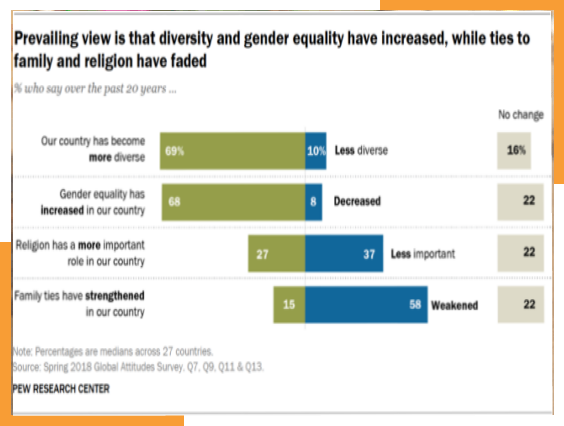Leverage Opportunities to Impact Others

Global Perspective on Equality and Equity
The business world is quickly embracing globalization. Today, people have information at their fingertips, making them more aware than ever of the social injustice and inequality prevalent in their own communities. This unpleasant reality has led many to question the beliefs and values of the leading figures and corporations who serve them.
These days, there is a spotlight on businesses: what they stand for, their treatment of employees, and how they source and produce their products for consumers.
The world is changing in an undeniable way. If we fail to push for positive change, the repercussions could cause decay within our communities, stunting, or even halting economic progress.
These conversations have been paying off; slowly but surely, things are changing for the better. Diversity and gender equality are on the increase. People are taking up jobs in other countries with more confidence. Women are shattering the glass ceiling and history is being made. The world is becoming more open to change.
But we have to work together to continue this progress: “There is a consensus that global challenges are transnational due to the role multinationals play in importing and exporting cultures. We can then agree that the nature of any solution will be trans-institutional. This cannot be addressed by any stakeholder acting alone. They require partnerships and collaboration.”
For this reason, OneBarrow makes it a priority to work with multinationals, Fortune 500 companies, and non-profits to synthesize implementable solutions that promote our client’s brand and CSR values. This is an endeavor we need to undertake together! In the same breath, OneBarrow also strives to solve social, economic, climate issues, while addressing healthcare disparities in marginalized communities. We plan to achieve these goals by allowing our partnering corporations to focus on what they do best: provide for their customers.
There is a consensus that Global Challenges are transnational due to the role multinationals play in importing and exporting cultures. We can then agree that the nature of any solution will be trans-institutional. This cannot be addressed by any stakeholder acting alone. They require partnerships and collaboration
We cannot ignore the impact of diversity on today’s market economies. The more we embrace equality the more we allow for a society that thrives on equity.
Connecting the World
We provide the engine necessary for your employees to do good and be proud of what they represent.
Our DNA
Our society is continuing to make steps towards equality but being equal and fair is not always straightforward. Sometimes, people may need different treatment to make their opportunities the same as another’s. This is called equity. Does this mean we need to treat people differently in order to gain equality? If so, how can we do this without undermining equality?
Equity for Equality
Before the controversial nature of this question takes hold, I’d just like to clarify that by ‘unequal’, I do not mean providing someone with less but simply providing more to those who need it. Equality means giving everyone the same opportunities, but how can everyone have the same opportunities if some are receiving less support than they need in the name of equality? It is for this reason that I suggest equity plays a key role in ensuring equality, and the examples are not limited to students.
Upcoming Events
We are always hosting discussions on the impact of inequality and equity in our communities.
OneBarrow then guides these discussions through a series of ways we can engage in community programs, corporate partnerships, and other actions to help resolve inequality and promote equity in our world.
